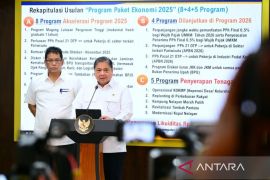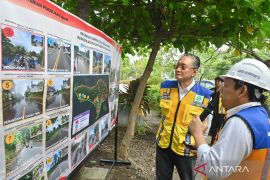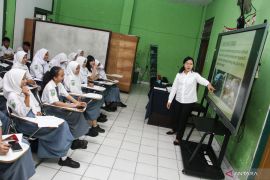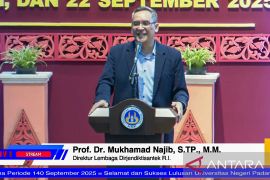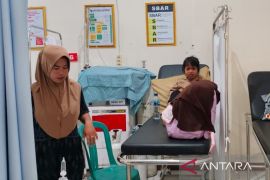"BASF has spent 250 million euros to conduct research and development in a bid to create a product that can help to fight the rice blast disease and increase the yield of rice," BASFs Crop Protection Business Area Manager for Southeast Asia Leon van Mullekom stated here on Tuesday.
Rice blast is one of the most destructive diseases affecting the rice crop and is caused by the fungus "Magnaporthe grisea," which can destroy rice plants.
"Innovations in rice-growing techniques and pesticides will contribute to higher rice yields and quality," noted Leon.
According to Leon, Indonesian farmers are able to produce about 4.7 tons of rice per hectare, while farmers in Vietnam and China harvest 5.6 and 6.5 tons of rice per hectare, respectively.
The Jombang district administration, Indonesian rice experts, and BASF gathered for a Rice Innovation Tour in Carangrejo village, Jombang district, East Java.
The event was organized to explore ways through which innovation can boost rice yields and quality, while simultaneously being safe for the environment and improving the livelihood of the local farmers.
BASF chose Jombang as a location to introduce its new and innovative product as it is one of the highest rice-producing districts in East Java, along with Banyuwangi, Ngawi, and Lamongan.
Nearly 60 percent of the total population in Jombang work as farmers, with nearly half of the total land in the area used as rice fields.
"This event is expected to help Jombang achieve the target of producing 436,207 tons of rice in 2015," Vice Regent of Jombang Munjidah Wahab affirmed.
In January 2015, Jombang has harvested seven thousand tons of rice. Earlier in 2014, Jombang managed to achieve a surplus production of 145 thousand tons of rice.
"Rat, brown planthoppers, and rice blast disease are the main constraints hindering farmers productivity. Innovation is expected to increase the productivity of farmers," Munjidah added.(*)
Editor: Heru Purwanto
Copyright © ANTARA 2015




